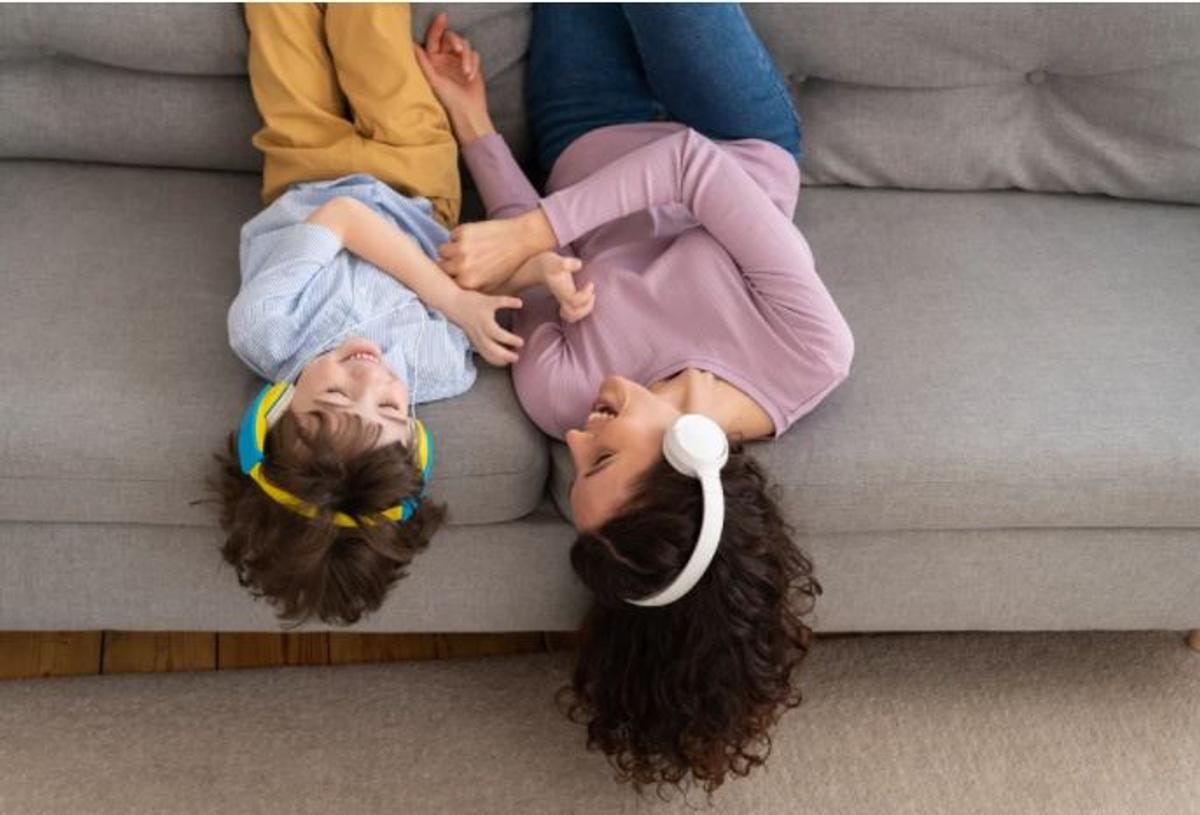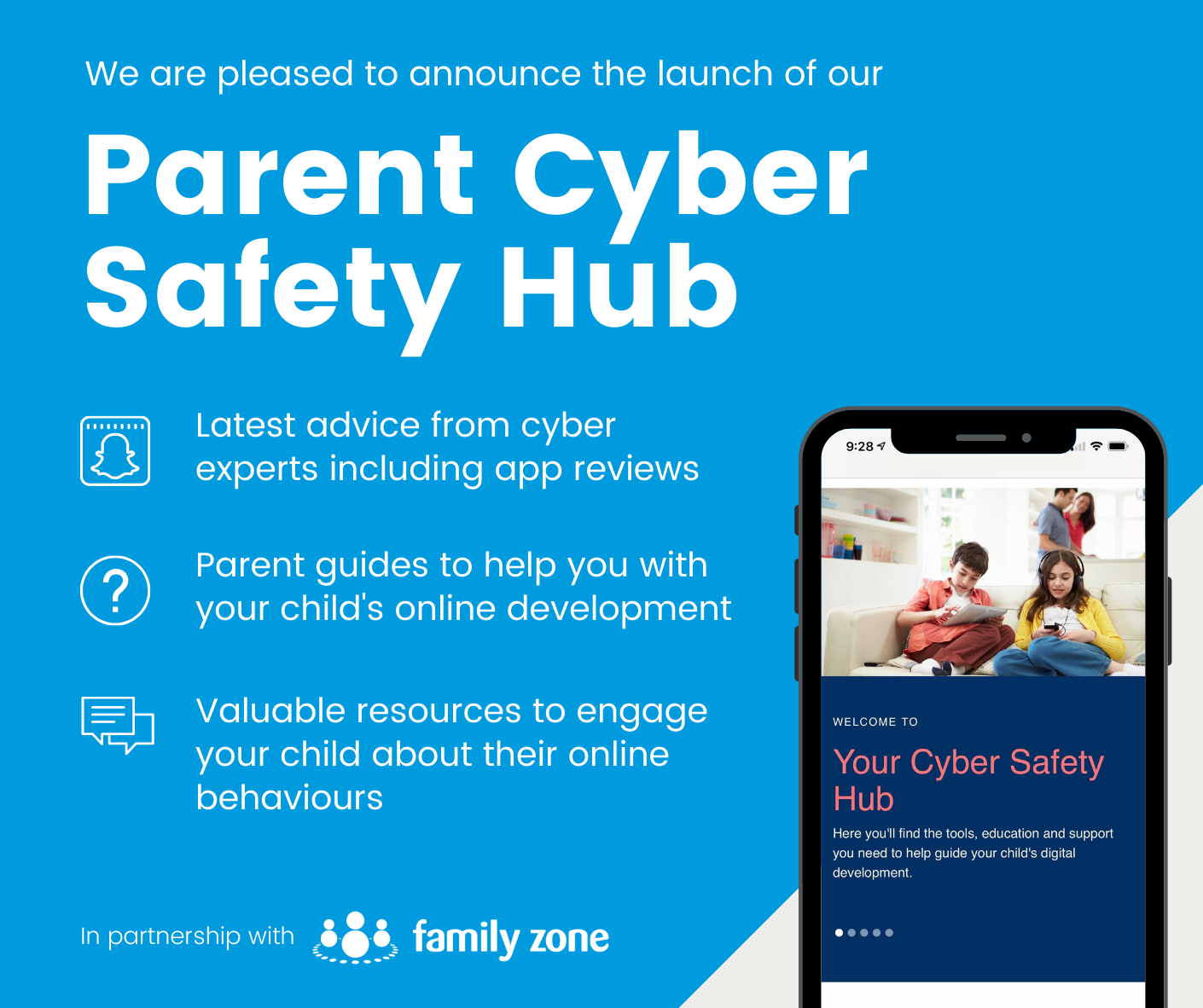Cyber Safety

A Practical Guide to Using Family Zone at Home
New technologies provide our children with wonderful opportunities. They are also having an ever-increasing impact on their development, education, safety and mental health.
John XXIII College has worked together with business partner Family Zone to provide families with home access to its Family Zone software and Cyber Safety Hub.
The College will host a presentation by Family Zone with a focus on the practical use of the software. This session will suit current users of the software or those who may want to investigate its potential.
- Date: Wednesday 18 August
- Time: 7:00pm
- Gonzaga Barry Lecture Theatre
Hearing loss trend is loud and clear, say experts
Our habit of plugging in - whether to music, podcasts or online games - is wreaking havoc with the delicate technology that comes as standard equipment on either side of our heads - aka, our ears.
The evidence is loud and clear. Hearing loss is growing problem. The good news? There are simple steps you can take to protect yourself and your family.
We heard a lot in this pandemic year about the devastating impact of screens on our kids’ vision.
Now it turns out - not surprisingly - that headphones and earbuds are doing a similar number on our hearing, as more and more of us, at younger and younger ages, spend our waking hours quite literally plugged in.
Right now, one in six Australians suffers from hearing loss. But by 2050, that number is tipped to rise to one in four, according to Macquarie University Hearing professor David McAlpine.
New research has found that the average hearing of people under age 50 has worsened significantly over the past two decades. It’s no coincidence that this timeframe coincides with a steep rise in the use of audio devices.
Audiologists believe that chronic noise exposure from our portable devices, aimed directly into the delicate structures of our ears, is a major contributing factor.
And the worst part? Hearing loss is irreversible. Once the damage is done, it cannot be undone.
Right now, one in six Australians suffers from hearing loss. But by 2050, that number is tipped to rise to one in four.
And it can happen in just 15 minutes. When the volume on headphones goes louder than 100 decibels, that’s all the time it takes to do permanent harm.
This is something you won’t read about in the packaging on your new set of earbuds. As a result, “many people assume devices they use are safe and have built-in protection that means you can just enjoy it,” says Dr. Peter Carew, a University of Melbourne audiology lecturer. “It’s not the case.”
In addition to the decibel level, duration of listening is the other big factor. Studies show we can safely listen to sound at 85 decibels for eight hours, for example.
But with every three decibels of increase, the period of safe listening halves. So if you’re listening to music at 94 decibels, say, your ears will be vulnerable after only 60 minutes.
Hearing loss is irreversible. Once the damage is done, it cannot be undone.
Which is all well and good - but how are you supposed to know the decibel level you’re hearing at any given moment? What makes it even more difficult is that our perception of sound is always relative to the environment.
In a noisy room, or on a busy city street, music played at an average level will sound too soft. In a silent setting, you’ll be able to comfortably hear the same music at much lower levels.
What you can do to prevent hearing loss
- Adjust settings. Yes, there IS a way to limit the decibel level of your, or your child’s, smartphone or tablet. On Apple devices, go to Settings>Sounds & Haptics>Headphone Safety. From there, simply adjust the slider to limit decibels. Experts recommend dropping it down to 75 decibels.
- Switch to noise-cancelling devices. Yes, they’re more expensive. But headphones and in-ear devices that cancel outside noise are safer - simply because they block the noise in the environment that would otherwise cause you to crank up the volume. And headphones are regarded are safer than earbuds when used excessively.
- Go on a noise diet now and then. It’s like a digital de-tox, only for your ears. If your kids are spending too much time plugged in, make sure they take their ears on regular holidays. Limiting exposure will not only protect their ears, it will enable them to enjoy sound for longer.
- Savour the sounds of silence. Experts recommend no more than an hour of headphone use before taking a break. And two to three hours of exposure a day should be the max.
Reference: https://www.familyzone.com/anz/families/blog/hearing-loss-trend-loud-and-clear
Check out our Cyber Safety Hub
We are delighted to introduce you to a new resource made available to you through our partnership with Family Zone - our new school Cyber Safety Hub.
As you may already be aware, our partnership provides your family with access to the Family Zone tools to use at home with your children if you wish. The purpose of the Cyber Safety Hub is to complement those tools with practical guidance and information to further support you in engaging with your children in their digital development. These tools and resources also allow the school and parent body to work together on creating a holistic approach to guiding each student's online journey.
You can access the Cyber Safety Hub using the link below:
https://johnxxiii.cybersafetyhub.com.au/
About the Parent Cyber Safety Hub
The Cyber Safety Hub includes resources to help your family better understand the different Family Zone tools available to you and how to use them, plus access to regular cyber safety events to help you stay informed about the latest digital trends.
Also, the Cyber Safety Hub provides expert advice from leading cyber experts, ySafe, on the most pertinent issues and frequently asked questions around platforms like TikTok, Fortnite, Instagram, and more. There are app reviews with age and safety recommendations, along with a range of guides to help ensure healthy boundaries around screen-time & gaming, plus step-by-step instructions for using parental controls and filtering out inappropriate content.
We are very excited to be able to offer you this level of expertise and support. We look forward to working closely with you as we develop the cyber safety conversation within our school community.


